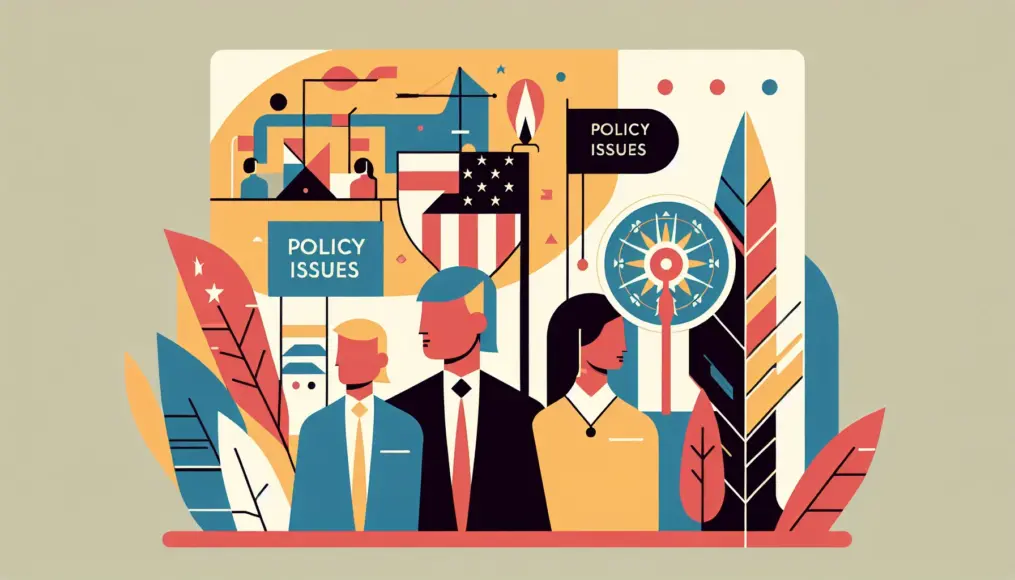Have you ever thought about the role the Constitution plays in safeguarding our peace? Peace is an essential aspect of our lives, and the Constitution serves as a crucial foundation for it. In this blog, we will explore how the Constitution guarantees peace and how it impacts our future.
By reflecting on the background of the Constitution’s establishment and its historical significance, we can gain insights into the challenges of peace we face today. Let’s take a moment to consider how we, as citizens, can better understand and uphold the Constitution.
- We’ll explain what peace is and how the Constitution helps ensure it.
- We’ll look back at the significance of the Constitution and the context behind its establishment in post-war Japan.
- We’ll deepen the discussion on contemporary issues regarding peace and the Constitution.
Understanding the Concept of Peace and the Role of the Constitution
When we think about peace in our daily lives, it’s not just the absence of war; it encompasses a secure environment and a society where people respect one another. This is why the constitution plays a crucial role in achieving peace. It establishes the fundamental rules of a nation and serves as a vital foundation for protecting our rights and freedoms. In this section, we will explore the question, “What is peace?” and delve into how the constitution guarantees it.
What is Peace?
The concept of peace is multifaceted. While it generally refers to the absence of war or violence, a deeper analysis reveals that it also includes social cooperation, economic stability, and environmental preservation. Peace is not merely a state of “no conflict,” but rather a condition that allows individuals to live happily. Achieving this kind of peace involves laws, systems, and importantly, the consciousness of citizens.
The benefits that peace brings are immeasurable. It enables development across various fields such as education, healthcare, and cultural activities. Conversely, when peace is disrupted, society becomes chaotic, significantly impacting individuals’ lives. From this perspective, maintaining peace can be seen as a responsibility that rests on each of us.
- Peace is not just the absence of war; it’s a condition for living happily.
- Social cooperation, economic stability, and environmental preservation are all part of peace.
- Maintaining peace is also an individual responsibility.
The Constitution’s Role in Ensuring Peace
The constitution is a law designed to protect the fundamental rights of citizens. The preamble of the Japanese Constitution states, “We, the Japanese people, desire peace for all time and are resolved to preserve our security and existence.” This highlights the importance of peace as enshrined in the constitution. By having a constitution, the state is held accountable for safeguarding the lives of its citizens.
Moreover, the constitution explicitly renounces war. Article 9 of the Japanese Constitution stipulates the renunciation of war and the non-maintenance of military forces. This mandates Japan to foster peaceful relations with other countries. The ideals of this constitution not only provide a legal framework but also play a role in nurturing our awareness of peace as citizens.

If you’re interested in this topic, I recommend checking out this article on the importance and conditions of constitutional amendments, “What are the Conditions for Constitutional Amendment? Key Insights for Considering Japan’s Future.” Let’s explore how the constitution influences our society together.
- The constitution is a law that protects the fundamental rights of citizens.
- The Japanese Constitution emphasizes the importance of peace.
- Article 9 renounces war and prohibits the maintenance of military forces.
Historical Context and the Establishment of the Constitution
The Japanese Constitution was established during a tumultuous post-war period. During this time, the people yearned for peace and held a strong desire to prevent the horrors of war from ever happening again. The Constitution reflects these sentiments and aims to construct a new society grounded in the value of peace. In this section, we will explore the significance of the Constitution in post-war Japan, the circumstances surrounding its establishment, and the impact it has had.
The Significance of the Constitution in Post-War Japan
In post-war Japan, the Constitution became more than just a legal document; it served as a pillar of hope for the people. Notably, Article 9, which advocates for pacifism, explicitly renounces war, providing a crucial foundation for creating a society where citizens can live without fear. The principles enshrined in this Constitution became a guiding light for the Japanese people as they sought to build a new nation, fostering values like democracy and respect for human rights.
Moreover, the Constitution plays a vital role in helping citizens recognize their own rights. Rights such as education, welfare, and labor are safeguarded by the Constitution, allowing individuals to empower themselves to improve their lives. This means that citizens possess the ability to actively shape their futures.
- The Constitution became a source of hope for the people of post-war Japan.
- Article 9, which advocates for pacifism, serves as an essential foundation.
- The Constitution helps citizens recognize their rights and empowers them to achieve self-realization.
The Background and Impact of the Constitution’s Establishment
The establishment of the Constitution was a response to the tragic consequences of war. After Japan’s defeat in 1945, the nation was searching for a path to rebuild itself. During this time, the occupying forces implemented policies aimed at instilling democracy, which led to a series of reforms. One of these reforms was the drafting of a new Constitution.
The new Constitution was promulgated in 1946 and came into effect in 1947. This marked a significant step for Japan as it sought to re-enter the international community. Additionally, the principles outlined in the Constitution contributed to the maintenance of international peace, as Japan’s renunciation of war became a powerful message of peace to the world.
- The establishment of the Constitution was a direct response to the tragedies of war.
- The new Constitution was promulgated in 1946 and took effect in 1947.
- The ideals of the Constitution also contribute to the maintenance of international peace.
Challenges to Peace and the Constitution in Modern Times
In our society, we enjoy a peaceful daily life under the Constitution, but we face a variety of challenges in the modern world. Among these, discussions about constitutional reform are particularly noteworthy, with many people concerned about how such changes might impact our peace. Additionally, as international relations evolve and society becomes more diverse, there is a growing need for new approaches to achieving peace. In this chapter, we will explore the debates surrounding constitutional reform and the realization of peace in contemporary society.
The Debate on Constitutional Reform and Its Background
The discourse surrounding constitutional reform is a significant topic in Japan. The discussions particularly focus on Article 9, which addresses the existence of the Self-Defense Forces and the exercise of collective self-defense. These debates have become increasingly active, driven by changes in the international security environment and developments in neighboring countries.
Supporters of reform argue that the Constitution should be revised to adapt to the changes of the times. Conversely, there are strong opposing views that advocate for maintaining peace and argue against altering the Constitution. This discourse around constitutional reform reflects the consciousness and values of the populace and must be approached with caution.
- Discussions on constitutional reform are a vital theme.
- Debates are particularly active regarding Article 9.
- There is a clash of opinions between supporters and opponents of reform.
Realizing Peace in Modern Society
In today’s world, achieving peace requires a variety of approaches. As technology advances and globalization continues, we are confronted with new challenges. Issues such as environmental degradation, poverty, and inequality pose significant threats to peace. Addressing these problems necessitates collaboration among individuals, communities, and the international community.
Moreover, public awareness plays a crucial role. It is essential for individuals to learn about the importance of peace through education and to foster a spirit of mutual support in community activities. To realize the pacifism enshrined in the Constitution, each of us must understand its significance and take action.
- New approaches are necessary for achieving peace.
- Environmental and social issues threaten peace.
- Public awareness and action are key to building peace.
Looking Ahead: A Vision for the Future
The vision of peace that we strive for through our constitution goes beyond merely avoiding war; it encompasses the realization of a better society. As we contemplate the future of Japan, it’s crucial to consider how the constitution supports peace and the roles we, as citizens, play in this process. By inheriting the ideals set forth in the constitution and actively taking action ourselves, we can build true peace. In this section, we will explore the form of peace that the constitution aims for, as well as the significance of upholding it and the role of citizens.
The Form of Peace the Constitution Aims For
The peace envisioned by the constitution is not just about renouncing war; it is about creating a society where everyone can live freely and happily. Peace is not merely a state of being; it is something that relies on the efforts of each individual. The rights and freedoms outlined in the constitution aim to ensure that each person is respected and that their voices are adequately heard in society.
Moreover, the constitution teaches us the importance of knowing and exercising our rights. For instance, the right to education and the freedom of expression serve as foundations for our active participation in society and for safeguarding peace. The form of peace that the constitution describes is closely tied to how we choose to act as we move into the future.
- The constitution aims not only to renounce war but also to create a happy society.
- Respecting individual rights and freedoms is the foundation of peace.
- Knowing and exercising our rights empowers us to protect peace.
The Role of Citizens and the Importance of Upholding the Constitution
Upholding the constitution is a responsibility that each of us, as citizens, shares. By understanding the rights guaranteed by the constitution and applying them in our daily lives, we can contribute to society. For example, participating in community activities and elections are vital means to express our opinions and work toward a better society.
Additionally, safeguarding the constitution is a crucial mission for passing on a peaceful society to future generations. By understanding and upholding the value of the constitution now, we can build a society where the next generation can live in security and peace. The constitution is an essential part of our lives, and we must act with this significance in mind.
- Upholding the constitution is a civic responsibility.
- Community involvement and voting are ways we can contribute to society.
- By understanding and protecting the constitution’s value, we ensure peace for future generations.
Conclusion
In this article, we’ve explored how the constitution guarantees peace and its significance in modern society. It’s clear that the constitution is more than just a set of laws; it serves as a vital foundation that supports our lives and communities. Peace is shaped by each of our individual awareness and actions, and it’s essential that we understand and uphold the ideals of the constitution as part of our responsibility.
By being mindful of the constitution and practicing its values in our daily lives, we can ensure that future generations inherit a peaceful society. Let’s continue to strive together for a society grounded in constitutional principles.
- The constitution is a crucial foundation that supports our lives.
- Peace is built upon individual awareness and actions.
- By understanding and upholding the constitution, we pass peace on to future generations.
Have you taken a moment to reaffirm the value of the constitution and take action? We’d love to hear your thoughts and feedback in the comments!



Comment